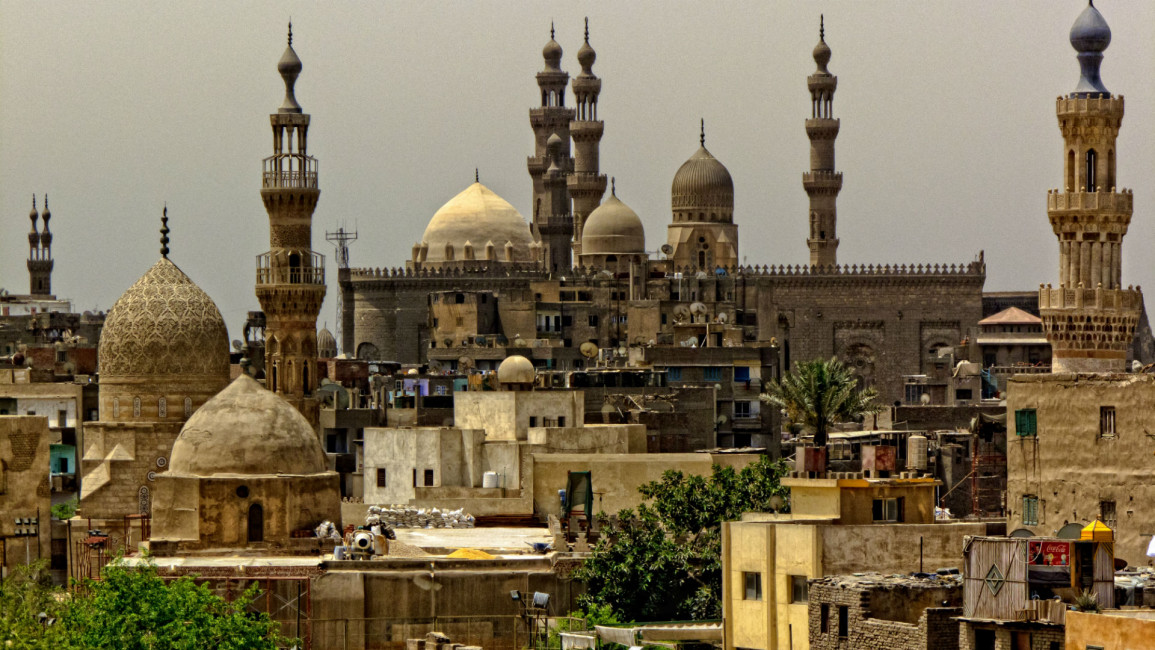
Farag Fouda's murder: a sign of things to come
On 8 June 1992, days before the Muslim holiday of Eid al-Adha, two radical Islamists from al-Jamaa al-Islamiya shot Farag Fouda.
The Egyptian professor was leaving his office at the Egyptian Enlightenment Society, an NGO he founded in Nasr City. He died several hours later.
Fouda was a liberal and secular-leaning thinker and writer, as well as a professor of agriculture. His books discuss Islamic political history and modern Islamist movements and governments, and call for the separation of state and religion, and oppose a literal implementation of Sharia teachings as law.
Fouda, who was a contemporary of Nasser, Sadat, and Mubarak, also weighed in on many other social and political issues of 20th century Egypt. He favoured the peace treaty with Israel signed by Egypt in Camp David, but only because it brought the occupied Sinai back under Egyptian control. In doing so he invited hostility from both Islamists and nationalists.
Fouda always maintained his belief in Islam as a religion, seeing himself as a reformer rather than an opponent of the faith. However, his views on reforming Islam and the need for a secular state, not unlike the views of his contemporary Nasr Hamid Abu Zayd, were too much for even the mainstream religious establishment of al-Azhar and the Muslim Brotherhood, a relatively moderate Islamist movement, to stomach.
Although his untimely death would come at the hands of what we now call radical jihadists, his assassination was almost condoned by mainstream religious voices of the time.
By challenging the major tenets of Islamic orthodoxy that the religious establishment still subscribes to today, especially related to the wholesale implementation of Sharia and the non-separation of mosque and state, Fouda earned himself the designation of "apostate" from a committee of clerics from al-Azhar, the foremost Muslim religious authority in Egypt and beyond.
| Harmful accusations were made against Fouda, including explicit insinuations regarding his alleged collaboration with Israel. |
During and after the debates, extremely harmful accusations were made against Fouda, including explicit insinuations regarding his alleged collaboration with Israel.
On 3 June, the Islamist al-Nour magazine, which Fouda had sued for slander after it accused him of engaging in orgies, published a fatwa declaring Farag Fouda an apostate.
During the trial of his killers, one of the men said he assassinated Fouda after a fatwa by radical cleric Omar Abdel Rahman declared him an apostate - apostasy under Sharia is punishable by death - because of his books. When he was asked which of Fouda's books he had read, the killer answered: "I don't know how to read."
Mainstream figures, while distancing themselves from the assassination, seemed to condone his 'apostate status' after his assassination. They included Hudaibi and Ghazali whom he debated before his death, and al-Azhar Sheikh Abdel Ghaffar Aziz.
Ghazali testified during the trial of his killers confirming Farag Fouda had deviated from Islam, while Sheikh Aziz wrote a book called: Who Killed Farag Fouda, which concluded "Farag Fouda killed Farag Fouda" because of his writings and ideas.
While these figures deny playing any part in inciting his murder, they endorse the death penalty for apostates, although they stress this should be enforced by the state after due process, and not by individual Muslims.
The Farag Fouda affair was by no means an isolated incident. Many who dared challenge Islamic orthodoxy without necessarily challenging Islam per se have often found themselves victims of such accusations and, in extreme cases, the targets of death fatwas.
Some also say the Egyptian regime, which has great control over Al-Azhar, has had a role to play. In Fouda's case, there was a strange alignment among the Mubarak regime, al-Azhar, and the Muslim Brotherhood.
Indeed, the regime often allows the religious establishment to silence its critics or people who it believes pose a threat to it. Today, the mufti of Egypt plays a major role in endorsing politically motivated sentences issued by Egyptian courts under the Sisi regime against Muslim Brotherhood and other opposition leaders and activists.
Regardless of the political connection, it remains clear today that none of the issues raised by Fouda have been resolved, even though 23 years have passed since his murder.
In reality, the opposite could be true. In the debate over a secular state and a modern interpretation of Sharia, the balance has been tipped further in favour of the orthodoxy, especially with the rise of ultra-extremists like the Islamic State group.
While figures have emerged in Egypt under Sisi ostensibly promoting reform, Sisi's alliance with the Salafist al-Nour party and the religious establishment means such voices are likely to be quickly silenced, despite Sisi's recent calls for reforming Islam. Nor are they likely to find support from the Muslim Brotherhood.
The nexus that cracked down on Fouda and condemned him directly or indirectly to a violent death, for nothing more than his point of view, proves that confronting authoritarianism, fundamentalism, and reactionary establishments is one and the same battle.
Opinions expressed in this article remain those of the author and do not necessarily reflect those of al-Araby al-Jadeed, its editorial board or staff.




